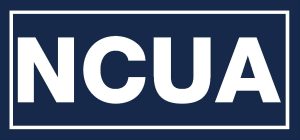
Financing a Home Renovation with a Home Equity Loan
Published on June 28, 2020
Q: I’m doing some home renovations, and I’m not sure how to finance it all. Do I take out a loan? Should I just charge all the expenses to my credit card? There are so many options! Which one makes the most sense for my finances?
A: Whether you’re gutting your entire kitchen or only springing for a fresh coat of paint and new fixtures, we’ve got you covered. As a member of TEG Federal Credit Union, you have several options when it comes to funding a home renovation. You can open a HELOC, or a Home Equity Line of Credit, which is an open credit line that’s secured by your home’s value for up to 10 years. You can also fund your renovations with a personal or unsecured loan, use your credit cards or use a retail credit card that’s connected to a home-improvement store, like Lowe’s or Home Depot.
One of the best ways to fund a home renovation is by taking out a HEL, or a Home Equity Loan. Let’s take a closer look at this popular loan and its many benefits.
What is a home equity loan?
A home equity loan is a loan secured by a home’s value. This means the home serves as collateral for the loan and guarantees the funds borrowed.
When borrowers open a HEL, they will receive a fixed amount of cash in one lump sum. The amount they will qualify for is calculated according to the home’s loan-to-value (LTV) ratio, payment term, income and credit history. Most home equity loans, have a fixed interest rate, a fixed term and a fixed monthly payment.
What are the advantages of a home equity loan?
The primary benefit a HEL has over other loans, including the HELOC, is its fixed interest rate. This means the borrower knows exactly how much the monthly payment will be for the entire life of the loan, making budgeting for the payments easier. This is especially beneficial in an environment of rising interest rates since the borrower’s loan is not subject to the increasing rates of adjustable loans. Also, the interest paid on a home equity loan is often 100% tax-deductible (consult your tax adviser for details).
Another benefit of a home equity loan is its consistent repayment plan throughout the life of the loan. Unlike a HELOC, which often only requires payments toward the loan’s interest during its first five years, borrowers will be making payments toward the loan’s interest and principal throughout the life of the HEL. Some loans even allow borrowers to pay back larger sums if they choose, though many will charge a penalty for early payments. Regardless of the lender’s policy, at the end of the loan term, the entire amount due will be paid up.
Are there any disadvantages of a home equity loan?
While a home equity loan offers borrowers access to the funds needed to cover home improvement projects with an affordable repayment plan, it’s important to know about every aspect of a HEL before applying.
Here’s what you need to know:
Taking out a HEL means paying several fees for the privilege of borrowing money against the home. It’s best to find out about these fees and how much they will amount to in total before applying for a loan.
Also, when opening a home equity loan, borrowers will receive all the funds in one shot. This makes a home equity loan a great option for homeowners who know exactly what kind of work they will do on their homes and the estimated total costs for that work.
If you only have a vague idea about which renovations you’ll do and how much they will cost, you may end up borrowing an insufficient amount of money. Unlike a HELOC, once the loan is taken out, there’s no way to add to the amount.
Finally, borrowers will need to make a monthly payment on the loan, regardless of their financial standing at the time. If they default on the loan, they may lose their house. Because of that, before taking out a home equity loan, borrowers should make sure they can afford the monthly payments on the loan.
*APR = Annual Percentage Rate.
More Recent Posts












